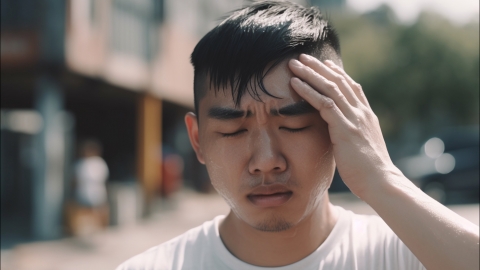Can heatstroke heal on its own?
Generally, in cases of mild heatstroke, the condition may resolve on its own if the individual promptly leaves the high-temperature environment and receives appropriate treatment. However, in cases of severe heatstroke, self-recovery is usually not possible, and timely medical attention is required. If symptoms of discomfort appear, it is recommended to closely monitor one's physical condition and seek treatment at a qualified hospital when necessary. Detailed explanations are as follows:

During mild heatstroke, the body temporarily experiences an imbalance between heat production and heat dissipation. The symptoms are relatively mild and may include dizziness, thirst, excessive sweating, and weakness in the limbs. At this stage, if the individual immediately leaves the hot and humid environment and moves to a cool, well-ventilated place to rest, while appropriately replenishing cool beverages containing salt to help restore the body's ability to dissipate heat, most people will experience relief within several hours and achieve self-recovery. This is because mild heatstroke has not caused substantial damage to bodily organs, and the body's self-regulating mechanisms can function to restore normal physiological conditions.
In cases of severe heatstroke, the body's temperature regulation system becomes severely impaired. Symptoms may include high fever, absence of sweating, coma, convulsions, and a drop in blood pressure. Some patients may also experience damage to organ functions, such as injuries to organs like the heart, liver, and kidneys caused by sustained high body temperatures. In such situations, the body's self-regulating capacity is overwhelmed. Without timely professional medical intervention—such as rapid cooling, intravenous fluid replacement, and correction of electrolyte imbalances—the condition can rapidly worsen and even become life-threatening. Therefore, severe heatstroke must be treated with medical interventions and cannot resolve on its own.
To prevent heatstroke, it is recommended to maintain a cool indoor temperature during hot weather, adequately replenish fluids, and avoid prolonged exposure to high-temperature environments.









